Understanding Autism and ABA Therapy in Italy
Autism Spectrum Disorder (ASD) affects numerous families across Italy, necessitating informed and effective therapeutic approaches. Applied Behavior Analysis (ABA) therapy has emerged as a scientifically validated method supported by Italian health authorities, aimed at improving the lives of individuals with autism. This article explores the landscape of ABA therapy in Italy, the qualifications of professionals delivering these services, the goals and techniques employed, family access and support mechanisms, and some of the challenges associated with this approach.
What is Applied Behavior Analysis (ABA) Therapy and Its Impact on Autism?
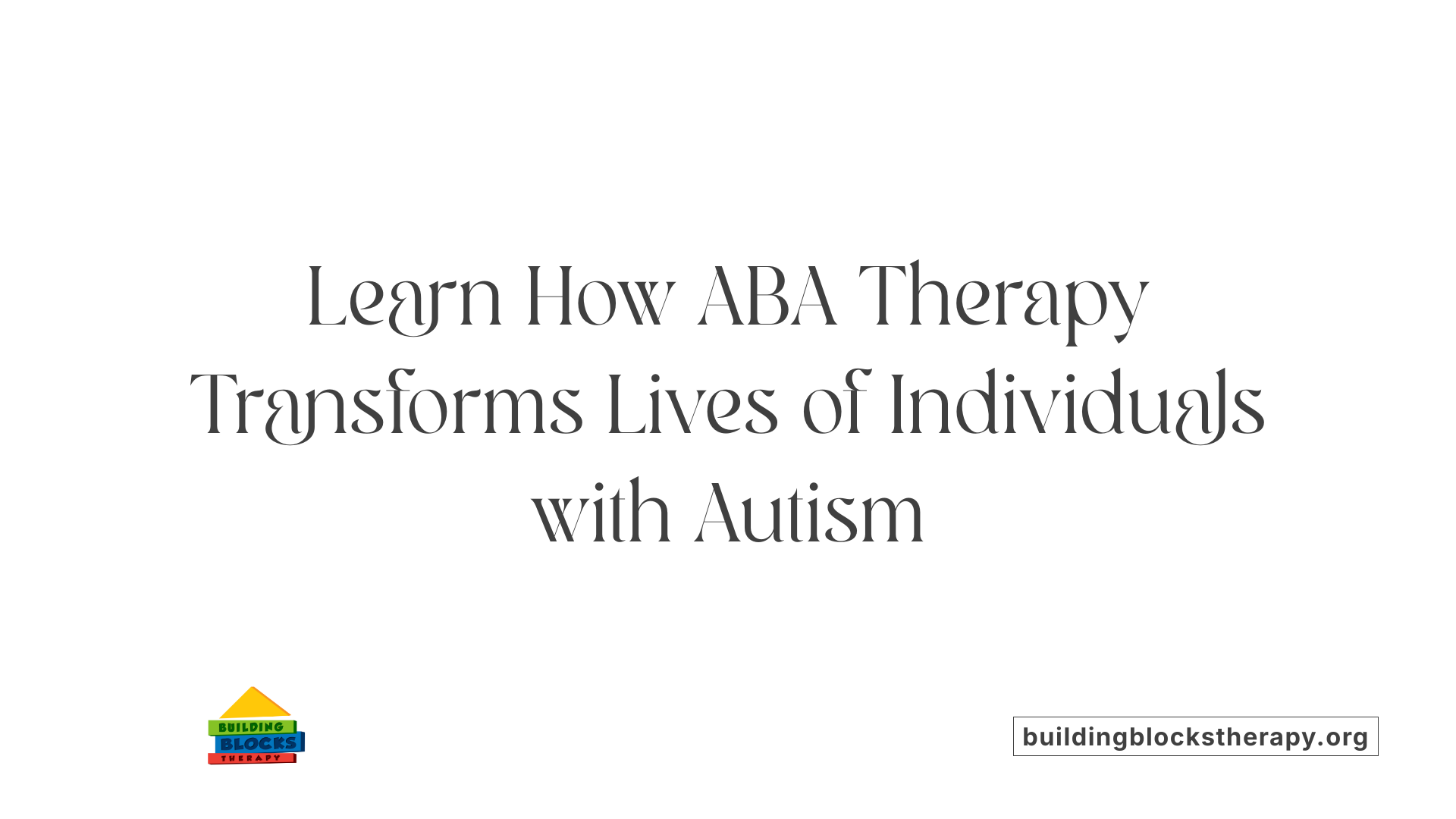
What is Applied Behavior Analysis (ABA) Therapy?
Applied Behavior Analysis (ABA) therapy is a scientifically backed approach that helps understand and shape behavior through structured reinforcement techniques. It focuses on teaching new skills and decreasing difficult behaviors by applying behavioral principles in a systematic and personalized way.
How Does ABA Help Individuals with Autism?
ABA assists individuals on the autism spectrum by targeting specific areas such as social interaction, communication, and daily living skills. Therapists design tailored programs that break down tasks into manageable steps, using positive reinforcement to promote learning and behavior change. This individualized approach results in improved independence and overall quality of life.
Scientific Validation and Recognition in Italy
ABA therapy is officially recognized in Italy as an effective treatment for Autism Spectrum Disorders. The Italian National Institute of Health has included ABA in its guidelines, underscoring its credibility. Centers like the ABA For Disability Center provide scientifically validated ABA services, collaborating with public institutions and health authorities, which integrates ABA therapy into Italy’s broader healthcare system.
Professional Expertise Behind ABA Therapy in Italy

Who provides ABA therapy, and what qualifications should professionals have?
ABA therapy in Italy is delivered by highly qualified specialists, including Board Certified Behavior Analysts (BCBAs), licensed behavior therapists, and professionals trained specifically in autism support. These experts hold certifications such as the BCBA credential, which ensures they apply evidence-based interventions aligned with rigorous research and ethical standards.
Qualifications of ABA professionals
To maintain high-quality care, ABA professionals must undergo comprehensive training, background checks, and receive ongoing supervision throughout their practice. This rigorous approach guarantees that therapy is not only effective but also safe and adaptable to each individual's particular needs. Additionally, these specialists emphasize parental involvement, working closely with families to customize interventions and monitor progress using systematic data collection.
Key personnel like Dr. Valeria Pascale and others
Prominent figures such as Dr. Valeria Pascale, the director of the ABA For Disability Center, bring extensive academic and practical experience to the field. Alongside her, expert therapists like Dr. Leandro Lago and Dr. Roberta Italiano from Elle ABA Palermo exemplify the high professional standards existing in Italian ABA services.
Collaboration with institutions and healthcare framework
Italian ABA centers maintain strong partnerships with public institutions, universities, and health authorities. Through collaboration with the national healthcare system, these centers integrate scientific advancements and standardized practices, ensuring that ABA therapy aligns with Italy's National Institute of Health guidelines. This connection further enhances accessibility, credibility, and coordinated care for individuals with Autism Spectrum Disorders throughout the country.
Goals and Techniques of ABA Therapy for Autism Support
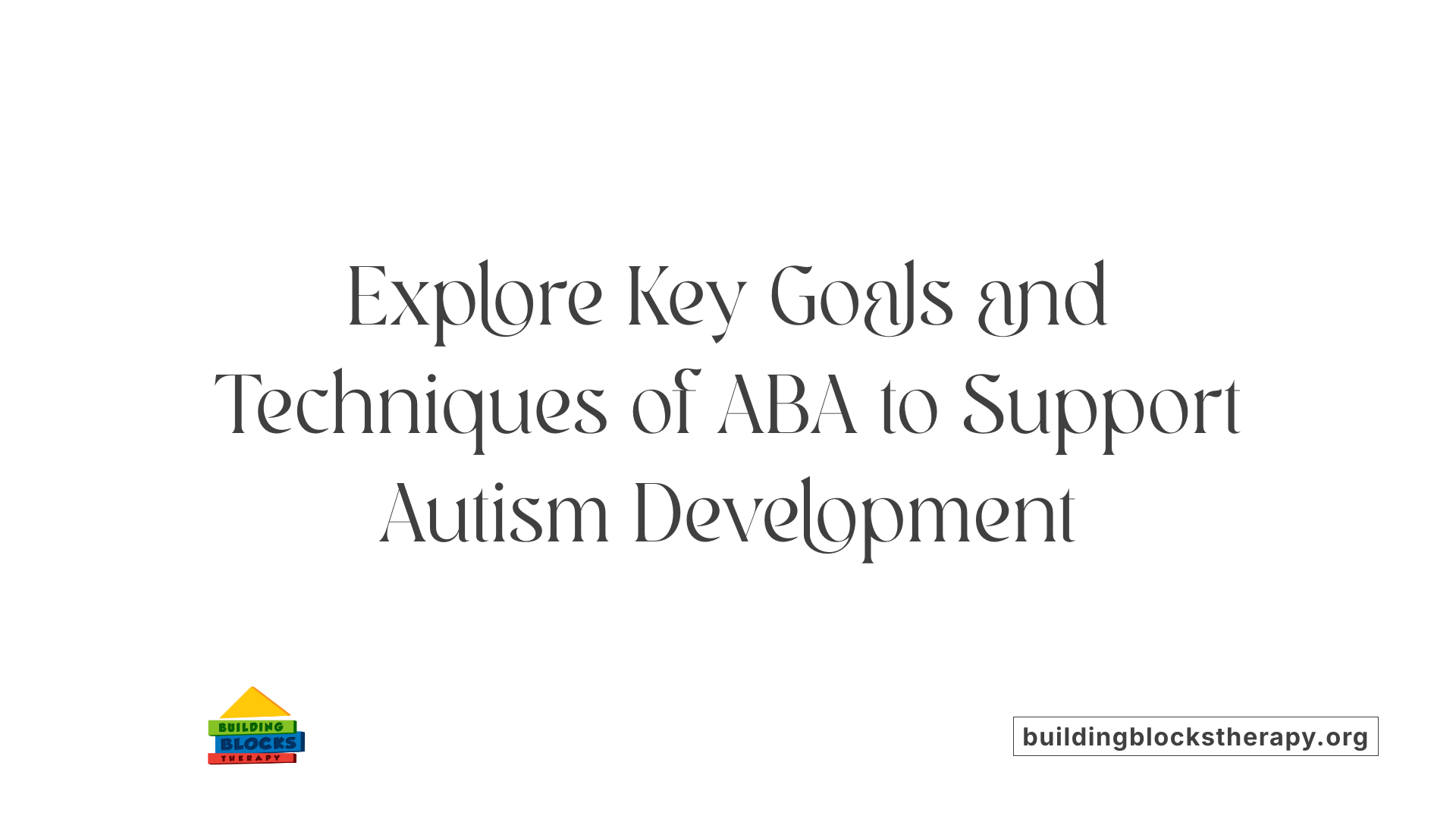
What are the common goals and techniques used in ABA therapy for autism?
Applied Behavior Analysis (ABA) therapy aims to enhance helpful behaviors while reducing those that may interfere with learning or social interaction. Common goals include improving communication, social skills, self-care abilities, play, motor skills, and academic performance. The therapy focuses on building meaningful skills that allow individuals with autism to function better in everyday life.
Several techniques form the foundation of ABA therapy. Positive reinforcement is a primary method, where desired behaviors are followed by rewarding stimuli to encourage repetition of those behaviors. Behavior analysts also use antecedent-behavior-consequence (ABC) analysis to understand what triggers certain behaviors and to develop strategies that encourage positive changes. Task analysis is another technique involving breaking down complex skills into smaller, manageable steps that can be taught sequentially.
Programs are highly individualized, tailored to each child's unique needs and challenges. These plans are developed and implemented by trained professionals, including Board Certified Behavior Analysts (BCBAs) and specialized therapists like those found at centers in Italy such as ABA For Disability Center and Elle ABA Palermo.
Scientific evidence strongly supports the effectiveness of ABA therapy. Numerous studies have documented long-term improvements in communication, social skills, and adaptive behavior, especially when interventions are started early and are intensive over time. This evidence has led to ABA's inclusion in Italian National Institute of Health guidelines as a recommended treatment for Autism Spectrum Disorders.
In summary, ABA therapy combines targeted goals with well-established techniques to produce meaningful gains in the lives of individuals with autism, guided by professional expertise and validated by research.
Accessing ABA Therapy and Family Support Systems in Italy
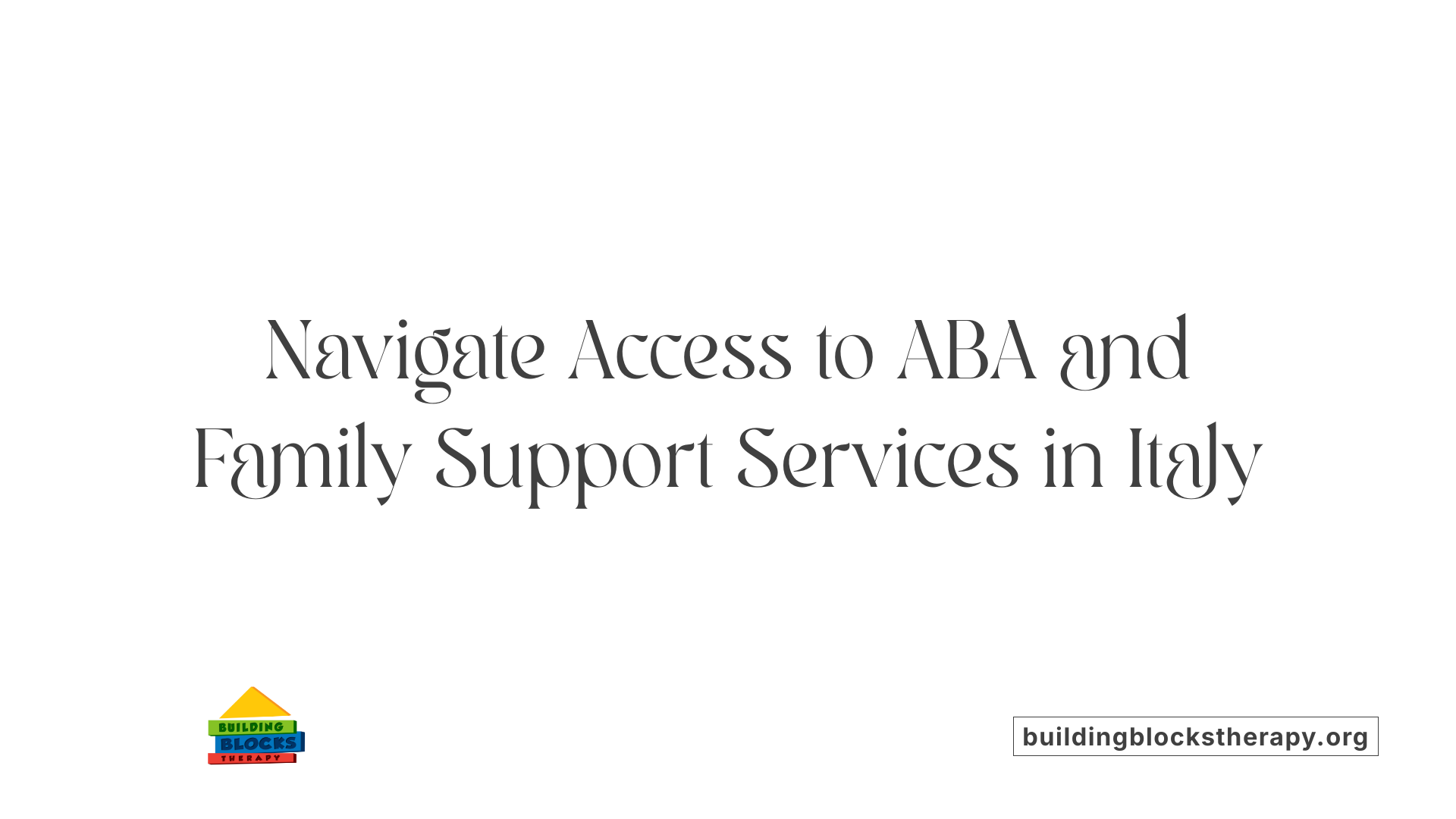
How can families access ABA therapy services, and what support is available for them?
Families in Italy looking to access Applied Behavior Analysis (ABA) therapy for autism spectrum disorders can turn to specialized centers such as the ABA For Disability Center and Elle ABA Palermo. These centers provide scientifically validated ABA services carried out by qualified professionals including certified behavior analysts and psychologists.
The ABA For Disability Center collaborates closely with public institutions, universities, and health authorities, integrating its services within Italy's national healthcare framework. Families typically begin by consulting healthcare providers or pediatricians who can refer them for developmental screenings and behavioral assessments using standardized tools such as ADOS or ADI-R. Early detection is a major focus, facilitating timely intervention across childhood and into adulthood.
Financially, many insurance plans in Italy cover behavioral therapies, including ABA. Public health funding, regional grants, and government-supported programs also help make these services more accessible. It is advisable for families to inquire about local health authority provisions and insurance policies to understand the extent of financial assistance available.
In addition to therapy, extensive family support systems exist. The centers provide family counseling and workshops aimed at enhancing caregivers’ understanding and resilience. Training programs help families engage actively in therapy sessions, fostering a collaborative environment. Moreover, guidance tailored for multilingual and international communities ensures that language barriers are addressed, with both online and in-person sessions offered.
These combined services ensure that families receive not only clinical care but also the necessary emotional and practical support, empowering them throughout their child's developmental journey.
Specialized Centers and Tailored Services Across Italy
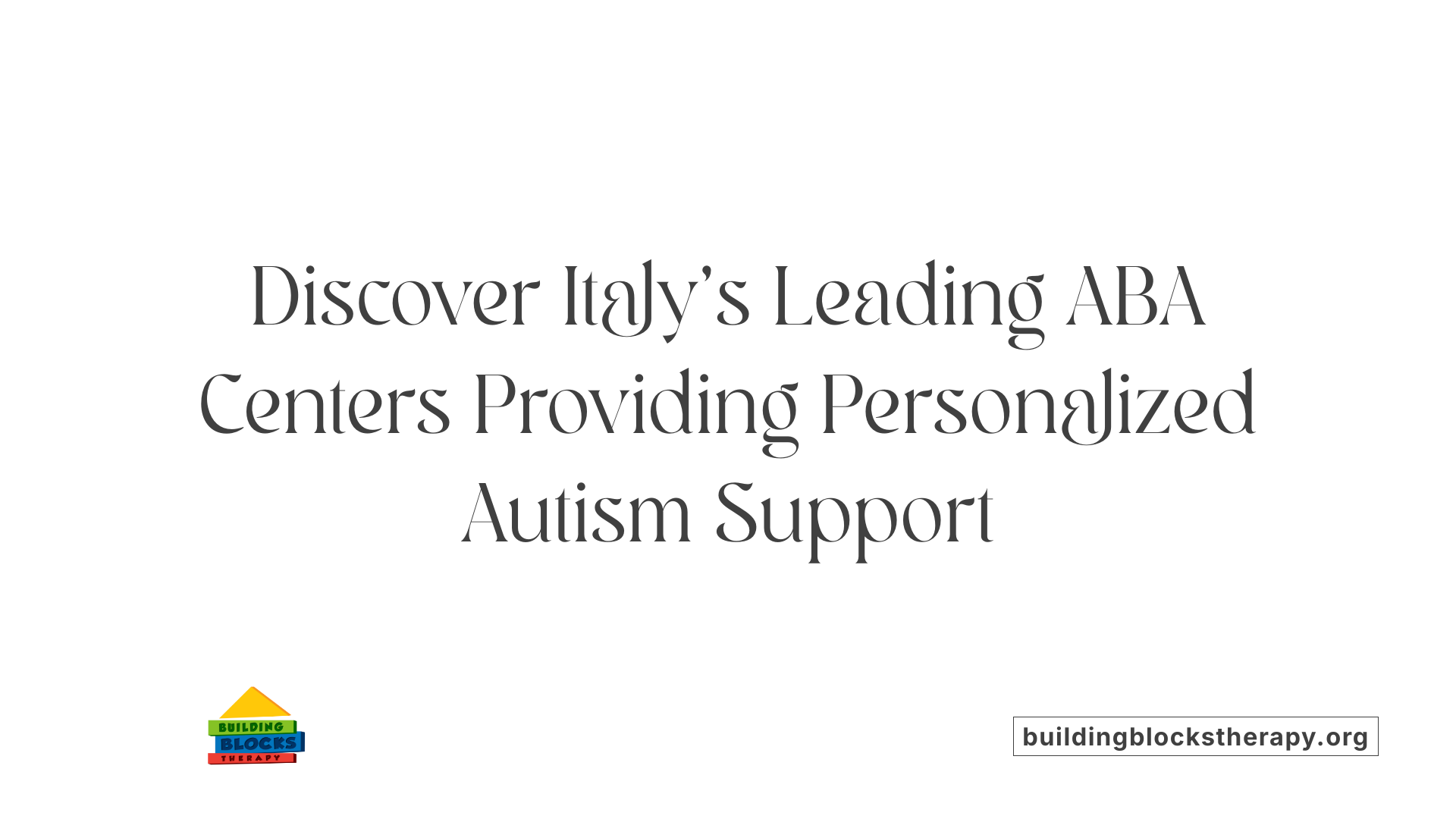
How does Therapsy support individuals with autism across Italy?
Therapsy offers comprehensive autism support services throughout Italy that emphasize early detection and intervention. Their programs target the entire lifespan of those affected, beginning with recognizing early signs like limited eye contact and repetitive behaviors. The diagnostic process at Therapsy is thorough, incorporating developmental screenings and standardized tools such as ADOS and ADI-R, with evaluations conducted by experienced professionals.
For teenagers, the center provides cognitive-behavioral therapy (CBT), academic support, and self-advocacy training. Adults benefit from career development assistance and therapeutic strategies to address co-occurring conditions like anxiety and depression. In addition, Therapsy supports families through counseling, workshops, and guidance, strengthening caregiver resilience and understanding.
What distinguishes Elle ABA Palermo in providing ABA therapy?
Elle ABA Palermo is a specialized center located in Palermo, Italy, focused on delivering Applied Behavior Analysis (ABA) therapy for children with autism. Renowned for its professionalism and expertise, the center has gained positive recognition from local parents, noting significant behavioral improvements in their children.
The team comprises highly qualified professionals, including noted specialists such as Dr. Leandro Lago and Dr. Roberta Italiano. Family involvement is strongly encouraged during therapy sessions, ensuring a collaborative approach to treatment. Furthermore, Elle ABA Palermo offers training programs for professionals to continually improve their skills in ABA, enhancing service quality.
How are services adapted for multilingual and international communities?
Recognizing Italy’s diverse population, centers like Therapsy tailor their autism services to accommodate multilingual and international families. They provide both online and in-person sessions to overcome language barriers and geographic limitations. This approach ensures accessible, culturally sensitive support that meets the unique needs of families from varied linguistic backgrounds across the country.
Challenges and Ethical Considerations of ABA Therapy
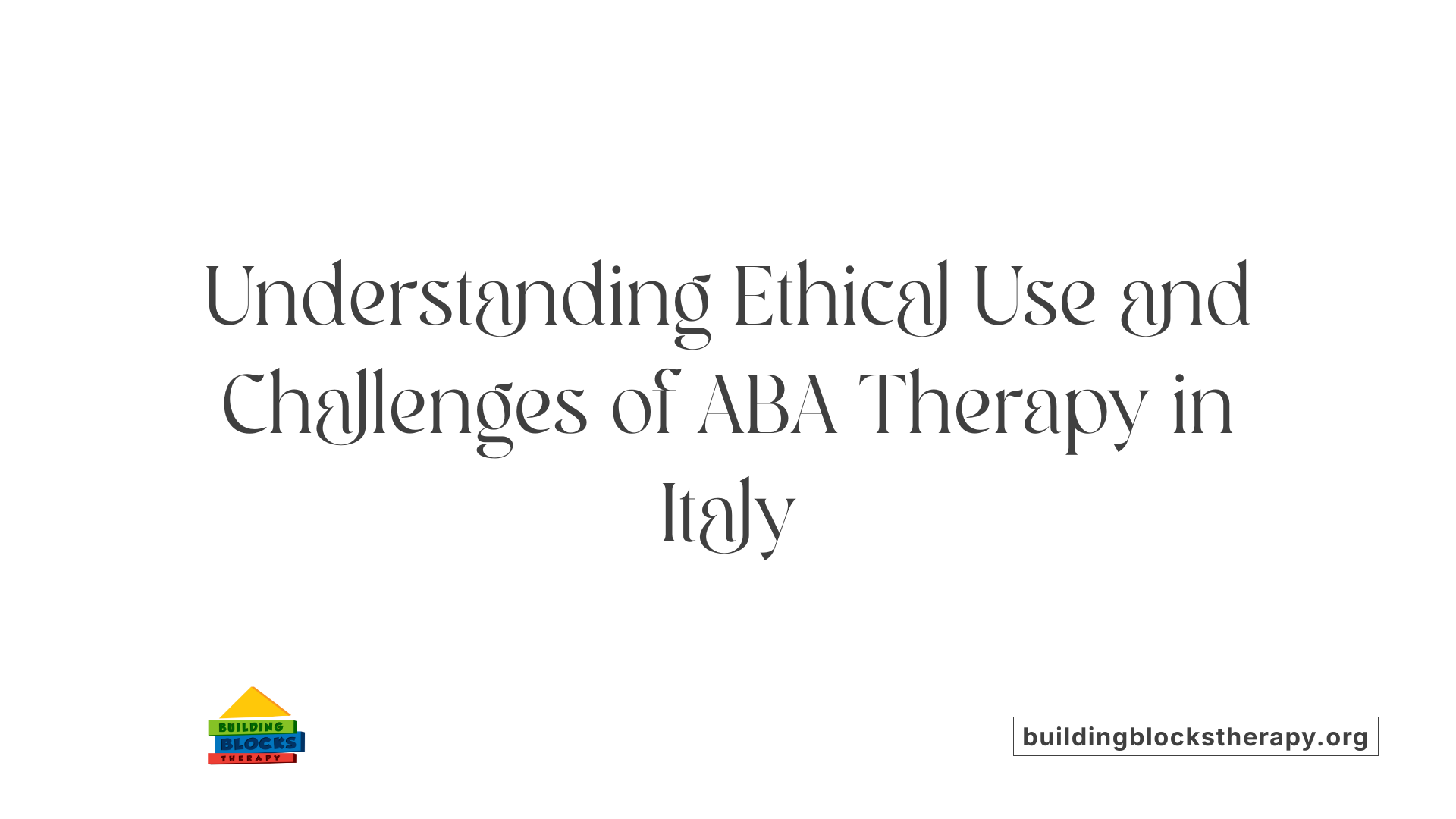
Are there any challenges or criticisms associated with ABA therapy for autism?
Applied Behavior Analysis (ABA) therapy, while effective and widely used in Italy through centers such as ABA For Disability and Elle ABA Palermo, is not without its challenges and criticisms. Some families and professionals express concerns about the therapy’s intensity, which can sometimes lead to stress or burnout for the individual receiving treatment.
Critics also point out that ABA’s focus on behavior modification might unintentionally sideline the emotional well-being and personal expression of children with autism. This has raised important ethical questions, urging practitioners to ensure that therapy is tailored to the child’s unique needs rather than following a rigid, one-size-fits-all method.
Emotional well-being and ethical application
Ethical application of ABA involves balancing behavioral goals with respect for the child’s individuality and emotional state. The centers emphasize family involvement and personalized plans, which help maintain an ethical standard by promoting collaboration and respecting the individual’s pace and preferences.
Balancing benefits and potential stress or burnout
Effectively balancing ABA’s therapeutic benefits with potential challenges requires a sensitive approach. Professionals at reputable centers, like Dr. Valeria Pascale’s team at ABA For Disability and the experts at Elle ABA Palermo, are trained to recognize signs of stress and adapt therapy accordingly. This approach minimizes burnout and maximizes positive outcomes, ensuring that therapy supports both skill development and emotional health.
By integrating scientific rigor with ethical mindfulness, ABA therapy in Italy strives to offer valuable support while addressing its potential pitfalls.
Supporting the Autism Community in Italy Through ABA and Beyond
The adoption of Applied Behavior Analysis therapy across Italy represents a significant stride in autism support, blending scientific rigor with compassionate care. Through qualified professionals, collaborative institutional frameworks, and family-centered approaches, ABA therapy is making a resounding impact on individuals with autism, promoting skills development, social integration, and overall well-being. While challenges and ethical considerations remain, Italy’s commitment to improving access and tailoring services for diverse communities underscores a hopeful future for those affected by autism spectrum disorders.






